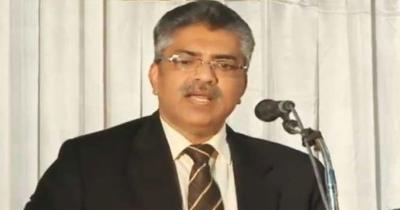Replace Discriminatory Muslim Law with Uniform Civil Code – Justice Kamal Pasha

Kerala High Court judge Justice B Kamal Pasha has indeed stirred a hornet’s nest early this week, by stating that there was no need to put up such blind opposition to the much needed Uniform Civil Code.
Flaying the Islamic clergy class for ensuring male hegimony, Justice Kamal Pasha highlighted that women are badly discriminated against because of Muslim Personal Law. Addressing a seminar organised by an NGO run by women lawyers in Kozhikode, Justice Pasha said it is high time the law is amended, much to the rage of many fundamentalist groups.
“What is wrong in absorbing the positive elements in other religious paths,” said Kamal Pasha, asking why Muslim women could not have four husbands while men enjoyed the same privilege under Muslim personal law. Stating that even the Supreme Court had reservations of being involved in the matter of amendments of Muslim Personal Law, Kamal Pasha said that there were no laws in Muslim Personal Laws, only discrimination.
“When it comes to matters like divorce, property rights, law is indeed a matter of hinderance. Muslim personal laws are heavily loaded against women. Religious heads have established a hegemony of men. They should do self-introspection whether they are eligible to pronounce one-sided verdicts. People should also think about the eligibility of persons who are pronouncing such verdicts,†he said, adding that women were deprived even of the rights enshrined in the Quran.
Pasha also said that it was unfair to oppose a uniform civil code. “Even the highest court is a bit reluctant to interfere in this. Women should come forward to end this injustice,†he said.
“Personal law is loaded with discrimination. Besides denying equality, it also denies women’s right to property and other issues,†he said. The judge added that the Protection of Women from Domestic Violence Act, 2005, will be fruitful if the right of a woman to her husband’s property is properly defined.
Under the Muslim personal law, a man can marry four times. Although many Muslim countries have banned polygamy, it is still prevalent in India.
Welcome to Haindava Keralam! Register for Free or Login as a privileged HK member to enjoy auto-approval of your comments and to receive periodic updates.
Latest Articles from Bharath Focus
- Narendra Modi: The Architect of India’s Momentous Transformation
- Republic Day Tableaux & Regional Pride
- Tarun Vijay meets Governor Arif Khan on Adi Sankara birthplace
- SC-ST പോസ്റ്റ് മെട്രിക് സ്കോളർഷിപ്പിൽ 5 ഇരട്ടി വർദ്ധനവ്
- Treading the Middle-Path on Temple Management
- Taming the dragon-Part-3
- Taming the dragon- Part 2
- India- China trade wars on the cards? Well researched blog on Indian govt.’s proposed plan to tax 371 Chinese goods
- Before removing the idols, I should be removed; Two Kerala faces we should never forget
- The Unseen Unheard Victims of Article 35(A)


Responses